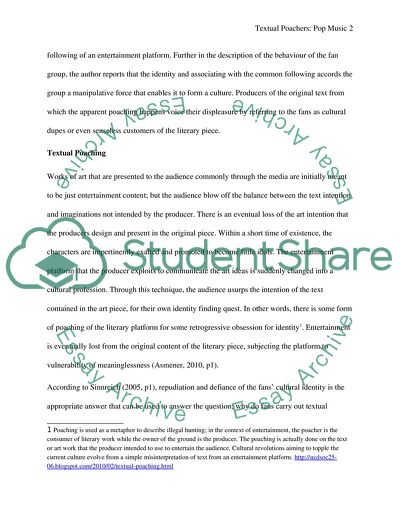Cite this document
(“Citing particular examples, discuss how far pop music can be Essay”, n.d.)
Citing particular examples, discuss how far pop music can be Essay. Retrieved from https://studentshare.org/miscellaneous/1575259-citing-particular-examples-discuss-how-far-pop-music-can-be-considered-textual-poachers-henry-jerkins
Citing particular examples, discuss how far pop music can be Essay. Retrieved from https://studentshare.org/miscellaneous/1575259-citing-particular-examples-discuss-how-far-pop-music-can-be-considered-textual-poachers-henry-jerkins
(Citing Particular Examples, Discuss How Far Pop Music Can Be Essay)
Citing Particular Examples, Discuss How Far Pop Music Can Be Essay. https://studentshare.org/miscellaneous/1575259-citing-particular-examples-discuss-how-far-pop-music-can-be-considered-textual-poachers-henry-jerkins.
Citing Particular Examples, Discuss How Far Pop Music Can Be Essay. https://studentshare.org/miscellaneous/1575259-citing-particular-examples-discuss-how-far-pop-music-can-be-considered-textual-poachers-henry-jerkins.
“Citing Particular Examples, Discuss How Far Pop Music Can Be Essay”, n.d. https://studentshare.org/miscellaneous/1575259-citing-particular-examples-discuss-how-far-pop-music-can-be-considered-textual-poachers-henry-jerkins.


